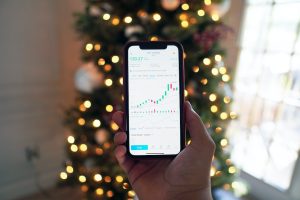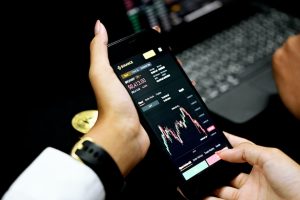Forex derivatives are financial contracts that derive their value from underlying currency exchange rates. They are financial instruments that allow traders and investors to manage risk, speculate on currency movements, and hedge against currency fluctuations. Forex derivatives are traded over-the-counter (OTC) through a network of banks, financial institutions, and brokers.
Forex derivatives are financial contracts that derive their value from underlying currency exchange rates. These contracts include forwards, futures, options, and swaps. Each of these contracts has different characteristics and is used for different purposes.
Forwards: A forward contract is an agreement between two parties to buy or sell a currency at a predetermined exchange rate and date in the future. The parties agree on the exchange rate at the time of the contract and the settlement takes place at the maturity date. Forwards are used for hedging purposes, and they allow traders to lock in a future exchange rate to avoid currency fluctuations.
Futures: A futures contract is similar to a forward contract, but it is traded on an exchange. The exchange acts as an intermediary, and the exchange guarantees the performance of the contract. Futures contracts have standardized contract sizes, expiration dates, and settlement procedures. Futures contracts are used for both hedging and speculative purposes.
Options: An option contract gives the buyer the right, but not the obligation, to buy or sell a currency at a predetermined exchange rate and date in the future. The buyer pays a premium for this right, and the seller is obligated to sell or buy the currency at the agreed-upon rate if the buyer exercises the option. Options are used for both hedging and speculative purposes.
Swaps: A swap is a contract between two parties to exchange cash flows based on a predetermined exchange rate. The cash flows are based on the difference between the spot exchange rate and the predetermined exchange rate. Swaps are used for hedging purposes, and they allow traders to manage their cash flows and currency exposures.
Forex derivatives are used for different purposes. The most common use of forex derivatives is for hedging purposes. Hedging is a strategy used by traders and investors to reduce the risk of currency fluctuations. For example, a company that imports goods from overseas may use a forward contract to lock in a future exchange rate to avoid currency fluctuations.
Forex derivatives are also used for speculative purposes. Speculation is a strategy used by traders and investors to profit from currency fluctuations. For example, a trader may buy a call option on a currency if they believe the currency will appreciate in value. If the currency does appreciate, the trader can sell the option for a profit.
Forex derivatives are a complex financial instrument that requires a high level of expertise to trade successfully. Traders and investors should understand the risks involved before investing in forex derivatives. The risks involved in trading forex derivatives include market risk, credit risk, liquidity risk, and operational risk.
In conclusion, forex derivatives are financial contracts that derive their value from underlying currency exchange rates. They are used for managing risk, speculating on currency movements, and hedging against currency fluctuations. Forex derivatives include forwards, futures, options, and swaps. Each of these contracts has different characteristics and is used for different purposes. Forex derivatives are traded over-the-counter (OTC) through a network of banks, financial institutions, and brokers. Traders and investors should understand the risks involved before investing in forex derivatives.






